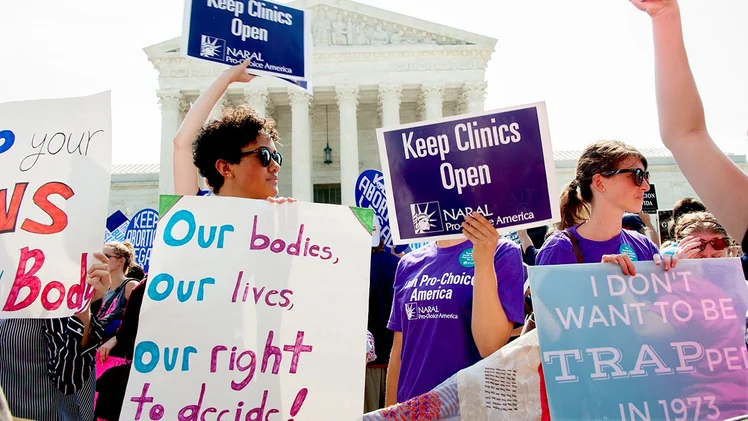On January 22, 1973, Roe v. Wade marked a defining moment in U.S. legal history, affirming abortion as a constitutional right under the right to privacy. This decision, lasting nearly five decades, had broader implications beyond abortion rights, notably influencing the LGBTQ+ community’s fight for bodily autonomy.
Roe v. Wade originated from a Texas case involving a woman under the pseudonym Jane Roe. The Supreme Court’s 7-2 decision established a trimester framework for abortion regulation. This ruling not only dealt with reproductive rights but also set a precedent that later decisions, such as Lawrence v. Texas, which invalidated anti-sodomy laws, would draw upon. These decisions collectively underscored the intimate link between reproductive and LGBTQ+ rights.
Roe’s Overturn and Its Ripple Effects
The 2022 Dobbs v. Jackson Women’s Health Organization ruling overturned Roe, marking a seismic shift in the legal landscape. This reversal was facilitated by a more conservative Supreme Court, influenced by appointments made during Donald Trump’s presidency. The immediate effect of this decision was the enactment of restrictive abortion laws in numerous states, predominantly in the South and Midwest.
The Dobbs decision’s ramifications extended to other rights associated with bodily autonomy, sparking concerns within the LGBTQ+ community. Notably, Justice Clarence Thomas suggested that the court should reconsider rulings like Lawrence and Obergefell v. Hodges, the landmark decision that legalized same-sex marriage. Although the Respect for Marriage Act, enacted in 2022, provides some federal protection for marriage equality, the threat to these rights remains tangible.
The LGBTQ+ Response and Future Outlook
In response to these developments, LGBTQ+ activists emphasize the importance of vigilance and proactive measures. They advocate supporting organizations that champion LGBTQ+ healthcare, including gender-affirming treatments, and reproductive rights. The emphasis is also on backing political candidates who pledge to safeguard bodily autonomy rights.
As the legal tides shift, the intersectionality of reproductive and LGBTQ+ rights becomes increasingly evident. The Roe v. Wade anniversary serves as a reminder of the ongoing struggle for these interconnected rights, highlighting the need for continued activism and legal vigilance.

